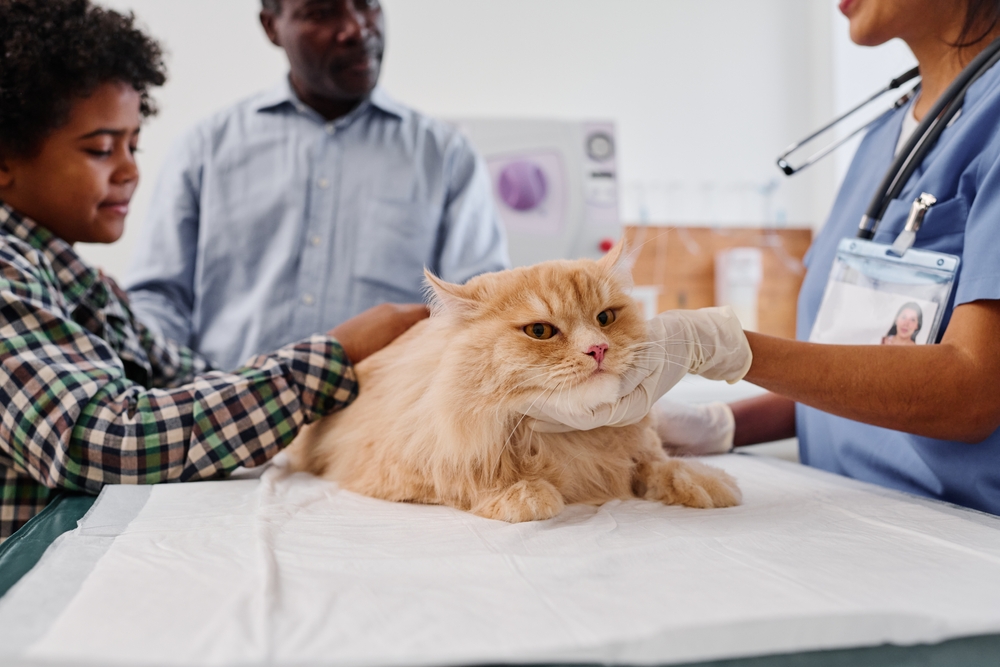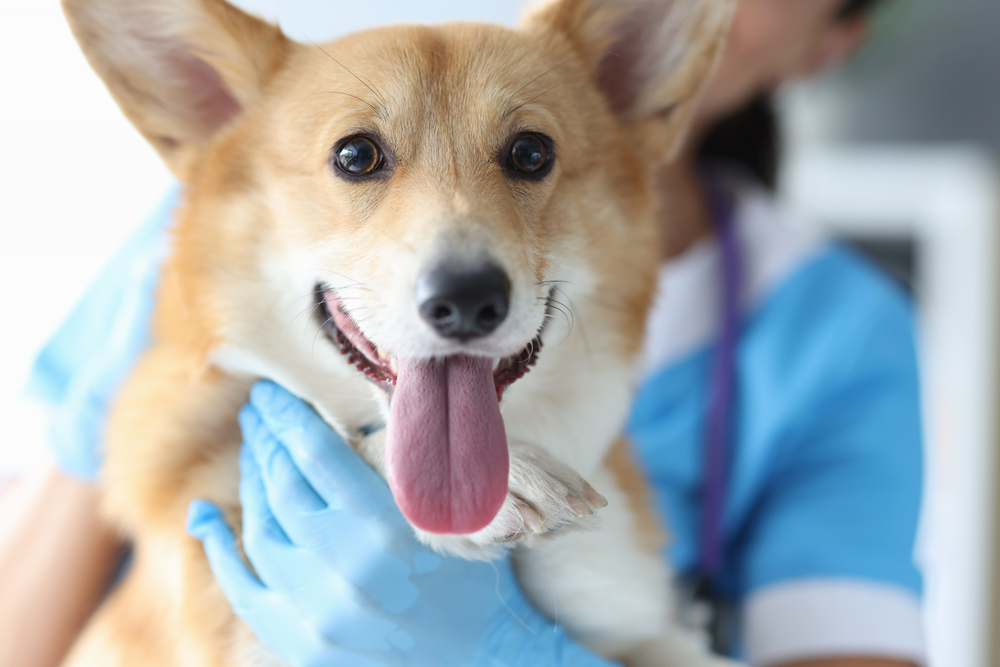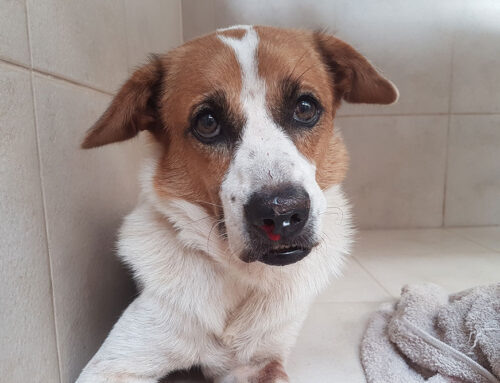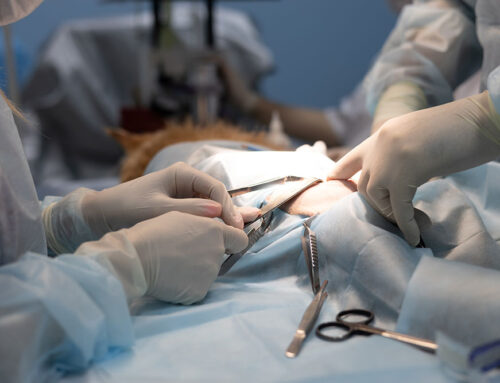Thyroid Disorders in Pets: Signs, Diagnosis, and Ongoing Care
Subtle shifts in your pet’s energy, appetite, or weight can easily be chalked up to aging. But sometimes, these changes point to an underlying thyroid disorder. Hypothyroidism and hyperthyroidism affect thousands of pets each year, often in ways that owners don’t recognize right away. At North Waterloo Veterinary Hospital in Elmira, Ontario, the goal is to help pet owners feel informed, supported, and confident about managing their pet’s thyroid health.
Understanding Thyroid Imbalances
The thyroid gland, though small, plays a critical role in a pet’s overall wellbeing. Its hormones influence metabolism, heart function, digestion, and even mood. When this gland works too slowly or too quickly, pets can feel the impact throughout their bodies.
- Hypothyroidism: Underactive thyroid, most common in dogs.
- Hyperthyroidism: Overactive thyroid, almost always seen in cats.
Recognizing the difference is key to getting the right diagnosis and care. The Cornell Feline Health Center and Cornell University’s Canine Health Center both offer valuable background on these conditions.
Why Do Pets Develop Thyroid Problems?
Understanding the “why” behind thyroid issues helps owners feel more in control.
Dogs and Hypothyroidism
- Often caused by autoimmune thyroiditis or gland shrinkage.
- Medium and large breeds, including Retrievers, Dobermans, and Boxers, have higher risk.
- Most common in middle-aged to senior dogs.
Cats and Hyperthyroidism
- Usually due to benign thyroid gland tumors (adenomas).
- Most cases develop in cats over age ten.
- Diet, environment, and genetics may play a role, but research is ongoing.
For general age-related health risks, the Preventive Testing for Senior Pets guide is a good place to start.
The Bigger Picture: Why Thyroid Balance Matters
A thyroid imbalance affects more than just energy. Left unmanaged, these conditions can harm multiple organs and reduce quality of life.
Untreated Hypothyroidism in Dogs May Lead To:
- Weight gain and obesity.
- Chronic skin infections and hair loss.
- Infertility.
- Rare but severe complications like myxedema coma.
Untreated Hyperthyroidism in Cats May Cause:
- Rapid heart rate, high blood pressure, and heart disease.
- Kidney damage from increased blood flow demands.
- Serious complications like thyroid storm.
Early detection and proactive treatment protect pets from these risks. This is why regular veterinary visits are essential, especially for senior pets.
How to Spot the Warning Signs
Owners often ask, “Is my pet just slowing down, or is something wrong?” These signs can help you know when to look deeper.
Hypothyroidism in Dogs
- Lethargy, sleeping more, and lack of interest in activities.
- Unexplained weight gain despite normal feeding.
- Dull coat, flaky skin, and hair loss.
- Cold intolerance, shivering, or seeking warm spots.
- Mental dullness or slow responses.
For more context, the AKC’s guide to lethargy in dogs breaks down causes.
Hyperthyroidism in Cats
- Weight loss paired with a strong appetite.
- Restlessness, especially at night.
- Increased thirst and more frequent urination.
- Vomiting or diarrhea.
- Rapid heartbeat or panting.
Behavior changes in older cats can signal other issues too. The ASPCA’s resource on older cat behavior problems offers additional insights.
Diagnostic Tools: What to Expect at Your Visit
At North Waterloo Veterinary Hospital, a thorough workup helps uncover thyroid conditions and any related complications.
Diagnostics May Include:
- Comprehensive physical exam to check coat, body condition, and palpate the thyroid.
- Bloodwork to measure T4, free T4, and TSH levels.
- Advanced imaging, like thyroid scans for cats, when needed.
- Heart health checks for hyperthyroid cats to monitor for high blood pressure or murmurs.
These steps ensure that the treatment plan fits each pet’s unique situation.
Treatment Options for Thyroid Disease
Good news: most pets respond well to treatment, and with consistent monitoring, they can enjoy a healthy life.
For Dogs with Hypothyroidism
- Daily synthetic hormone (levothyroxine) to replace what the thyroid no longer makes.
- Periodic blood tests to fine-tune the dose.
- Lifestyle changes like weight management and gentle exercise.
For Cats with Hyperthyroidism
- Medication: Methimazole, given orally or as a gel applied to the ear.
- Radioactive Iodine Therapy: Destroys overactive thyroid tissue and is often curative.
- Surgery: In some cases, surgical removal of the affected gland.
- Prescription Diet: A strict iodine-limited diet may help some cats.
The AAHA’s Feline Hyperthyroidism Guidelines explain these options in detail.
What Life Looks Like After Diagnosis
Pets with thyroid disease usually adjust well to treatment. Owners play a key role by:
- Sticking to medication schedules.
- Scheduling follow-up blood tests.
- Watching for changes in appetite, coat, or weight.
Small adjustments at home can help too: monitoring food intake, setting up cozy resting spots, and ensuring clean water is always available.
Tips for a Productive Vet Visit
To make the most of your appointment:
Bring:
- A timeline of symptoms, including appetite and activity changes.
- Notes on any changes in drinking or urination.
- Current medications and supplements.
Ask:
- How often will testing be needed?
- Are there side effects to watch for?
- Is surgery or radioactive iodine therapy appropriate for my cat?
Open, honest conversations help build a care plan that feels manageable for you and your pet.

FAQs: Your Top Questions, Answered
Can thyroid disease be prevented? There is no surefire way to prevent these conditions, but regular checkups help catch them early.
Is medication lifelong? Dogs with hypothyroidism need lifelong medication. Some cats can be cured with radioactive iodine or surgery.
How will treatment affect my pet’s daily life? Most pets have more energy, better coat quality, and improved appetite once thyroid levels stabilize.
Do I need to adjust diet? Cats with hyperthyroidism may benefit from iodine-restricted diets. For dogs, a calorie-controlled plan may help manage weight gain.
We’re Here to Support You and Your Pet
No one wants to see a beloved pet struggle with fatigue, weight changes, or unexplained restlessness. At North Waterloo Veterinary Hospital, your questions are welcome and your concerns are heard. Reach out to our team or request an appointment today. Together, we can keep your pet comfortable, healthy, and happy for many years to come.







Leave A Comment